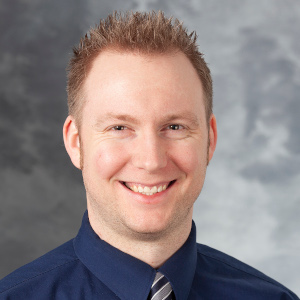Letter from the Fellowship Director:
Welcome to the Global Anesthesiology Fellowship at the University of Wisconsin!
Global Anesthesia Programs are one of the priorities of the Department of Anesthesiology here at the University of Wisconsin. Our initiative is to enhance perioperative care in low- and middle-income countries through education, research, and the clinical delivery of care. We have active global anesthesiology programs in Rwanda, Zambia, and Honduras, and are planning to revisit previous sites that were temporarily on hold due to the worldwide pandemic.
Our Global Health Anesthesiology Fellowship has the goal to recruit, educate, and train anesthesiologists who have a strong desire to learn about and experience global anesthesia, as well as contribute to the expanding research in the Global Burden of Surgical Disease and the Global Anesthesia Crisis. We have put together an innovative 1 year curriculum with ample opportunity for didactic learning, simulation sessions, and case discussions locally while affording the fellow 3-6 months to participate in education, research, and clinical care abroad. Fellows will also have the opportunity to complete the Capstone Certificate in Global Health Program through the prestigious University of Wisconsin Global Health Institute.
Information about our Global Anesthesiology Fellowship is below including information about how to apply. Please do not hesitate to reach out if you have any additional questions. Thank you for your interest, and I look forward to meeting you.
Sincerely,
Interim Fellowship Director: Global Anesthesiology
About Our Fellowship
Positions: 1 fellow per year
Length of Training: 1 year
Type of Training: 50% Global Fellow, 50% Clinical Instructor
Compensation: The fellow will receive a salary equivalent to a Clinical Instructor in Anesthesiology salary distributed equally over 12 months.
Application Deadline: March 1, the year prior to starting fellowship
Available for candidates who have successfully completed an ACGME accredited residency in anesthesiology.
There is no sub-specialty certification as this is not an ACGME approved fellowship.
This is an accordion element with a series of buttons that open and close related content panels.
Education Program
- Clinical Education – The clinical program will serve as the cornerstone of the fellowship training in global anesthesia. In order to achieve the necessary level of expertise, fellows should be prepared to master the following:
- Patient assessment in a low-resource setting
- General anesthesia in a low-resource setting
- Pain management for austere settings
- Basic regional anesthesia techniques
- Didactic Education – A didactic and educational program specifically dedicated to the safe practice of anesthesia in remote low-resource settings
- Fellows will complete the Capstone Certificate in Global Health Program through the University of Wisconsin Global Health Institute (12-month online program)
- Didactic teaching will occur during Global Health lectures/conferences/journal clubs, simulation sessions, and Department of Anesthesiology Grand Rounds
- A list of required reading and optional advanced reading will be provided to the fellows
- Monthly discussions with Global Anesthesiology Fellowship Director to review difficult cases and complications
- While abroad, fellows will attend and participate in the visiting Department of Anesthesiology Grand Rounds, resident didactic lectures, and morbidity and mortality conferences
- Fellows will be expected to teach residents at the University of Wisconsin who are planning to participate in overseas rotations, as well as participate in the ongoing education of learners at global sites
- Research
-
- Fellows are required to participate in research which is focused in the global realm and will be given appropriate nonclinical time to fulfill these goals. There will be opportunities for the fellow to become involved in research already in progress or to develop an original project. In either case, an appropriate attending anesthesiologist will be appointed to mentor and assist the fellow to facilitate these goals.
- The types of activities that would suffice as academic projects include a collection of complications and outcomes overseas or an interesting case study submitted to a peer-review journal; a clinical chart review or a review article submitted to, and accepted by, a peer-reviewed journal; or a book chapter approved by the Fellowship Director.
Facilities and Resources
- Equipment – A precordial stethoscope and Lifebox pulse oximeter will be provided to the fellow.
- Office – The fellow will be provided office space and a computer to use during their fellowship.
- Library – The fellow will have access to the department library and the UWSMPH Library.
- Support Services – The fellow will have support from administrative, clinical, and technical personnel within the Department of Anesthesiology and UWSMPH.
- CME – the fellow will be supplied a CME fund per the department policy for the period of twelve months that can be used towards educational materials or conferences.
